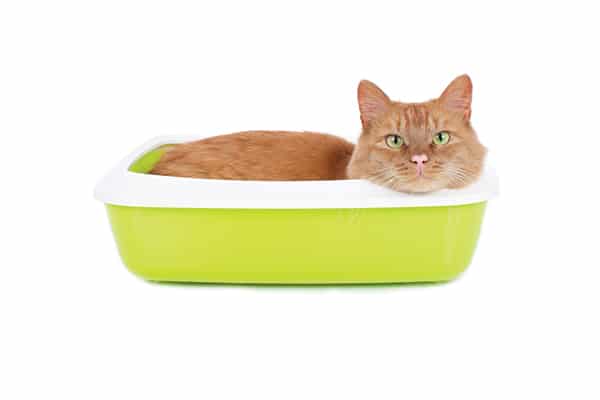
Cat droppings in kittens
Dr. Plotnick called the kittens "little eating and pooping machines". He noted that kittens generally defecate several times a day. Because of their small size, changes in stool should be monitored.
Don't worry: if your kitten misses a day in the litter box - that is, if she doesn't poop for a day - keep an eye on her. However, constipation that lasts more than a day can be a concern. It can have serious consequences if not recognized and treated in time," said Dr. Plotnick. If you don't see stool in the litter box after more than a day or two, or if your kitten becomes exhausted trying to defecate, take her to the vet as soon as possible.
Related: Let's talk poop! When is feline diarrhea a concern?
Be concerned : If your kitten begins to have diarrhea, plan a visit to the vet immediately. "I think diarrhea in kittens is always a concern because their small size makes them very susceptible to dehydration," says Dr. Plotnick. "Kittens don't tolerate dehydration very well and can become dangerously ill quickly if [the diarrhea] is not treated quickly. All cases of diarrhea in kittens must be examined". As a kitten grows to adulthood, the risk of occasional mild diarrhea and constipation decreases. "All cats suffer from occasional diarrhea or constipation," said Dr. Plotnick. "In most cases, it resolves itself or with minimal intervention, such as a change in diet or brief medication.
Cat droppings in adult cats
Jack had cat diarrhea during his adult years, caused by an allergy to his food. The main source of protein in his diet was chicken, so with the encouragement of my vet, I gradually switched him (and his feline companion, Phillip) to a diet based on beef and salmon protein. This change in diet solved the problem of diarrhea, and Jack's general coat and skin condition also improved. Diarrhea in adult cats can also be caused by inflammatory bowel disease or colitis and inflammation of the colon. Both of these conditions can be diagnosed by your veterinarian. In adult cats, constipation is most often related to hairballs that a cat has difficulty passing through, although your cat should be examined by a veterinarian to rule out other causes such as megacolon.
Don't worry: if your veterinarian rules out more serious problems, you may be able to treat your cat for constipation at home. "Hairball ointment, when given two or three times a week, is good for controlling hairballs," said Dr. Plotnick. "When given daily, it can act as a stool softener. A change in diet may also help. "Cats that are prone to constipation should be fed primarily canned food, rather than dry food, which can be more constipating," explained Dr. Plotnick.
This is a concern: Colitis can have many possible causes, including a sudden change in diet, eating something unusual, overeating, food allergies, bacterial infections, parasites, Giardia and even stress. Although occasional colitis is not uncommon - especially since cats are particularly sensitive to changes in their environment - Dr. Plotnick said regular, recurring episodes of diarrhea can be a cause for concern. If your cat regularly has diarrhea, take him or her to the veterinarian for a thorough examination as soon as possible. Jack is probably the model cat when it comes to being sensitive to changes in his environment - and it's certain that when two other cats and a dog moved in last summer, Jack's diarrhea came back. After a visit to the vet revealed no parasitic or bacterial causes, my vet and I examined some of the possible causes that could be related to Jack's age, as he is approaching the age of an older cat.
Cat poop in older cats
Cat diarrhea can be one of the many symptoms of hyperthyroidism, for example, with voracious appetite, weight loss, excessive thirst and urination, and vomiting. Luckily for Jack, the diarrhea went away quickly, but I'm watching for signs of it.
Don't worry: most, if not all, cats will suffer from diarrhea or constipation in their lifetime. An episode that lasts a day or two, even if it is not pleasant, is not uncommon.
Be Concerned: If your older cat has diarrhea or constipation for more than a day or more, take her to the veterinarian as soon as possible. "Cats become more fragile as they get older," said Dr. Plotnick. "And older cats can decline rapidly if problems such as diarrhea or constipation are not treated promptly.